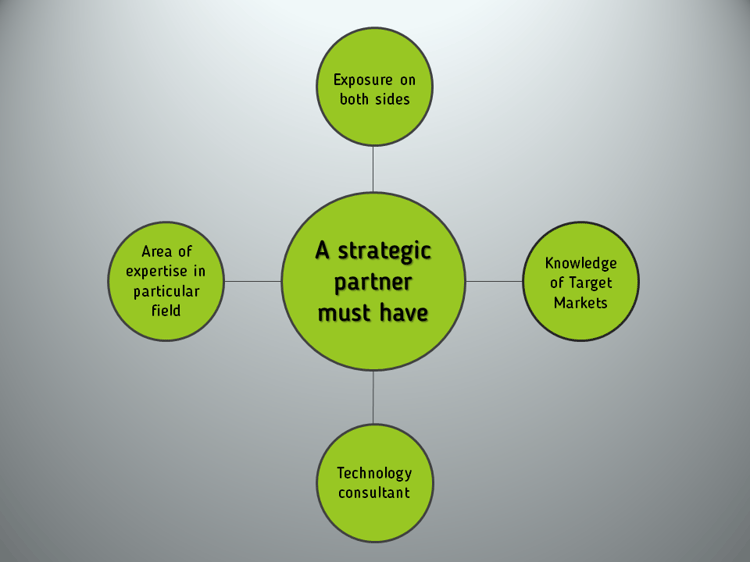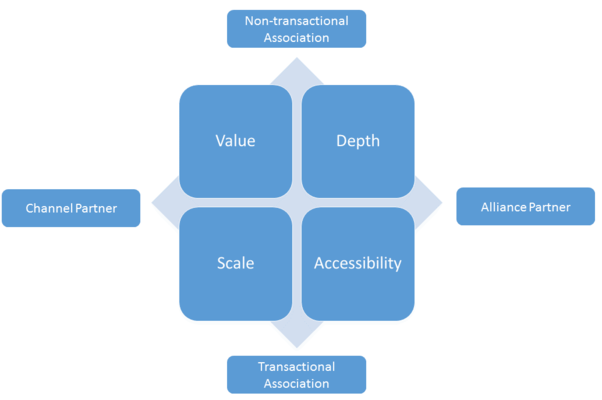
Most of the IT companies usually follows the traditional sales pattern, starting with prospecting and ending with new customer referrals. But, understanding each and every stage of the sales cycle can be crucial at times. Working on the particular skill in order to close the sales is time-consuming and may lead to customer attrition.
The current IT ecosystem is such where the sellers, partners and customers are reciprocally reliant on each other. The sellers cannot make it alone in order to reach their objectives and hence, they need partners. The success of the business depends upon how the entities are able to work together and collaborate. Hence, the answer to the situation is finding an appropriate partner and forming a strategic alliances.
In the world of technology, establishing alliances especially strategic alliances have become an important part of sales process. Strategic alliances help companies to expand and flourish as a brand into an economy where there is lack of trust towards the international companies or service providers. They provide assistance to the enterprises in achieving their independent business objectives. But, what do you mean by “Strategic alliance?”
Strategic alliance is an agreement between two organizations or an individual entity to cooperate for business transactions. Strategic entails development and planning for a long-term objective whereas, Alliance denotes a relation between two business entities where the combined forces generate more value for the customer instead of working independently to achieve a common goal.
Alliances are easy to form but working towards accomplishing a common goal could be complex. Companies reaching new heights are aware of how to select the best alliances and pursue the opportunities mutually. Therefore, choosing a partner according to the needs having expertise, skills and knowledge of certain domain can heavily contribute to the growth of the business.
Here are the few factors one need to consider while forming alliances.
- Market intelligence: Knowledge of the target markets is one of the aspects, essential while forming strategic alliances. Ideally, partner should be a local representative of country, where the company is targeting to expand its services or products. The partner being from the local community certainly enjoys the benefits of local bonding or personal connections with multiple stake holders across organizations via networking clubs and communities. Familiarity with the native language and culture will always be an added advantage for entering into a potential marketplace.
- Area of expertise: Prior entering into a strategic alliance relationship, it could be examined whether the partner has a stronghold in array of services before planning to pitch or promote any area of expertise/services.
- Exposure: Mapping of suspects and internal stakeholders must be attainable by a potential strategic partner. This can be accomplished, if the partner has been on both the sides of fence, being a vendor and client. Familiarity on both the sides can be an incentive for gaining trust of suspects and stakeholders while dealing across the table or during the conference call. It also helps the service providers or the companies to understand how particular instances needs to be presented. As every geography has certain unique attributes in terms of expectations from prospects
- Technology consultant: Having technology and tech-savvy enthusiasts as partners can leverage while approaching the suspects and clients on the technology associated services. Their skills could aid in providing clarifications on queries related to technology and overcoming initial micro-level challenges. The skills of a tech-consultant are also beneficial during entire development life cycle. As a result, prospects shall get a proper understanding of the technologies, which in return could open the doors to new opportunities. This actually results in more of consulting mode which changes the complete outlook
Strategic alliances are enabling the IT industry by providing enormous benefits like access to the market, shared knowledge and expertise and competitive advantages in the marketplace. Strategic alliances are the next step towards the brand growth and path to reach the new markets where the consumers are reluctant to be served by international service providers.



